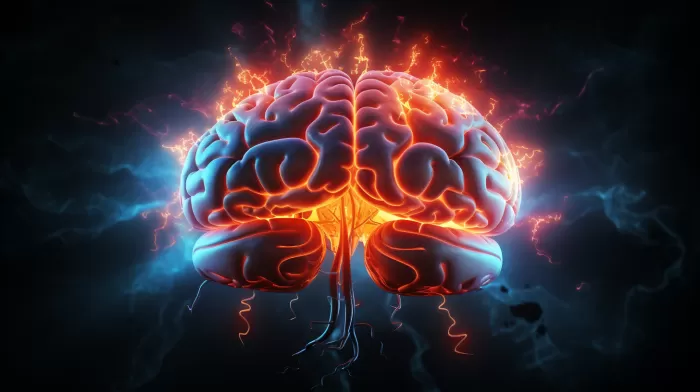Picture this: It’s been a long day at work, and you’re stuck in traffic on your way home. You can feel the stress and anger building up inside, and before you know it, you’re fuming. Sound familiar?
It’s no secret that chronic stress and negative emotions impact our health, but did you know that your own brain could be attacking your heart when you get angry or anxious? Let’s explore how we can control the triggers to protect our heart health.
Inflammation: The Key Connection Between Brain and Heart
Inflammation is the body’s response to injury or irritation, and while it’s essential for healing, too much of it can cause serious health issues. High blood pressure and heart disease are linked to increased levels of inflammation in the body. So, how is this connected to emotions and the brain?
A study at the University of Pittsburgh has discovered that the part of your brain that you activate when you get angry or anxious also increases chemicals in your body responsible for causing harmful inflammation. Neuroscientist Peter Gianaros explains, “Many of the same brain areas involved in emotion are also involved in sensing and regulating the levels of inflammation in the body.” Simply put, experiencing strong negative emotions can lead to physical signs of risk for heart disease.
The Science Behind Your Emotional-Biochemical Connection
The research team at the University of Pittsburgh found that people who had greater brain activation while trying to control negative emotions showed higher levels of a chemical called interleukin-6, a pro-inflammatory cytokine. These individuals also had increased thickness of the carotid artery wall, indicating the development of atherosclerosis.
According to Gianaros, “These new findings agree with the popular belief that emotions are connected to heart health. We think that the mechanistic basis for this connection may lie in the functioning of brain regions important for regulating both emotion and inflammation.”
The amygdala, a small almond-shaped region deep in the brain, is responsible for processing emotions, and it’s also involved in regulating inflammation. When we experience stress or negative emotions, the amygdala sends signals to multiple areas in the body, including the immune system, to produce a range of inflammatory chemicals.
Strengthening Your Emotional Immune System
Now we know how negative emotions trigger inflammation that can lead to heart disease, it’s time to explore how to reduce stress and minimize the risk to our heart health. Here are some proven strategies:
- Mindfulness Meditation: Calming and centering your mind have been proven to be effective for reducing stress and calming inflammation. A study from Carnegie Mellon University found that practicing mindfulness meditation for just 25 minutes a day for three consecutive days helped lower inflammation levels in the body.
-
Aerobic Exercise: Getting your heart rate up has significant benefits for your cardiovascular health and can help manage stress. The American Heart Association recommends adults engage in at least 150 minutes of moderate-intensity aerobic exercise or 75 minutes of vigorous-intensity aerobic exercise each week.
-
Deep Breathing: Taking deep, slow breaths can induce relaxation and help reduce stress. One technique, called “paced breathing,” involves consciously inhaling and exhaling for five seconds each. This helps shift your body’s balance away from stress towards relaxation.
-
Social Support: Spending time with friends and family, joining support groups, or engaging in community activities can reduce stress and improve mental health. In fact, studies have found that people with strong social connections are less likely to develop heart disease.
-
Counseling and Therapy: Professional help is available for those struggling with mental health issues, stress, or chronic illness. Cognitive-behavioral therapy (CBT) specifically focuses on identifying negative thought patterns and replacing them with healthier alternatives.
Final Thoughts
We often underestimate the power that our emotional state has on our overall health. Understanding the connection between the brain, inflammation, and heart disease is a crucial first step in taking control of your health. By incorporating stress-reduction techniques into your daily routine, you can strengthen your emotional immune system and protect your heart from the harmful effects of chronic inflammation.
Remember, the next time you find yourself in a stressful situation, take a deep breath and remind yourself of the power you have in protecting your heart health.



